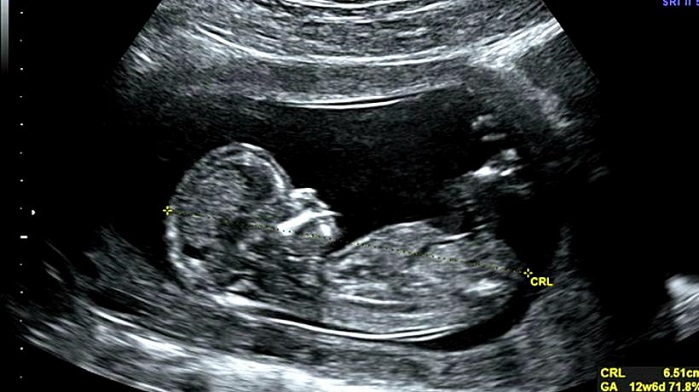The only way abortion advocates and the liberal can justify killing babies in abortions is to take away their humanity. Because if unborn children are truly just clumps of cells instead of unique human beings then abortion is no big deal.
For decades, the scientific world has known that unborn children are living human beings whose lives begin at conception. Their hearts begin beating before any mother knows she’s pregnant and their body begins to develop very quickly, — well before abortions are routinely done to end their little lives.
But, in its latest bit of scientific revisionism, the New York Times falsely claims unborn babies don’t have beating hearts.
This new terminology is not based on facts or scientific evidence. It’s based on an agenda that supports abortion on demand. “Embryonic pulsing,” for example, is such a vague description that it is hard to understand precisely what it means. And it appears to have been used that way on purpose.
The Texas law banning abortions after about six weeks of pregnancy is based on a singular premise disputed by many medical experts: that once an ultrasound detects electrical cardiac activity in an embryo, its heart is beating and a live birth is on the way.
At this very early stage of a pregnancy, however, the embryo is the size of a pomegranate seed and has only a primitive tube of cardiac cells that emit electric pulses and pump blood.
Language has long been a battleground in the political struggle over abortion, and the sparring now centers on a word with deep resonance: “heartbeat.”
Please follow LifeNews.com on Gab for the latest pro-life news and info, free from social media censorship.
The Texas law, which makes no exceptions for cases of rape or incest, forbids abortion at the time a “heartbeat” can be heard, which usually occurs at six weeks of gestation. The appeal is emotional: Many parents-to-be are moved by sounds during an ultrasound scan. But what the law defines as the sound of a heartbeat is not considered by medical experts to be coming from a developed heart, which forms later in pregnancy.
The consensus among most medical experts is that the electrical activity picked up on an ultrasound at six weeks is not the sound of a heart beating and does not guarantee a live birth. The sound expectant mothers hear during a scan is created by the machine itself, which translates the waves of electrical activity into something audible.
And that contention is completely false. The New York Times disguises the truth and attempts to manipulate the public into believing something different from what they know to be true.
Many years ago, scientific research established the fact that an unborn baby’s heart starts beating around four weeks, or 21 days, after fertilization – usually before the woman knows she is pregnant. Many sources on fetal development report this, though others link to evidence that the heartbeat begins at 18 days.
New research from the University of Oxford indicates that an unborn baby’s heart may begin beating even earlier, according to the Daily Mail. Research funded by the British Heart Foundation found that an unborn baby’s first heartbeat may occur as early as 16 days after conception.
Professor Paul Riley, who led the research, said they were trying to understand how the heart develops and what causes heart problems that develop before birth.
“By finding out how the heart first starts to beat and how problems can arise in heart development, we are one step closer to being able to prevent heart conditions from arising during pregnancy,” Riley said. “We also hope that this new research will help us to learn how the beating of new heart muscle cells might be triggered in replaced muscle after a heart attack.”
Here’s more:
They have demonstrated earlier beating of the heart in mouse embryos which, if extrapolated to the human heart, suggests beating as early as 16 days after conception.
In the study, published today in the scientific journal eLife, researchers studied the developing mouse heart and found that the muscle started to contract as soon as it formed the cardiac crescent – an early stage in heart development.
In mice, this crescent forms 7.5 days after conception, which is equivalent to day 16 in the human embryo.
The language that the world-renowned scientists used did not mention “embryonic pulsing” or “so-called.” They used words like “heartbeat,” “human embryo” and “heart muscle.”
“First of our three billion heartbeats is sooner than we thought,” the university wrote in its news release about the research.
Later, it noted, “The heart is the first organ to form during pregnancy and is critical in providing oxygen and nutrients to the developing embryo.”
The researchers said they hope to eventually use their findings to help treat and prevent heart conditions in unborn babies.
This evidence contradicts what abortion facilities often tell women about their unborn babies. At the earliest stage of life, unborn babies have functioning, beating hearts and blood of their own – sometimes a different type than their mothers.
By just eight weeks of pregnancy, doctors often can detect an unborn baby’s heartbeat on an ultrasonic stethoscope. Many moms get the opportunity to hear their baby’s heartbeat at this early point.
The abortion industry is anxious to hide this information from mothers, though. Most abortions occur around the eight week mark, and women often report being told that their baby wasn’t a baby at that point – just a blob of tissue.
Thanks to modern technology, however, these amazing details are more readily available to women and the general public. With new details about unborn babies being discovered every year, it’s becoming increasingly difficult to claim that they are not valuable human beings who deserve a right to life.








